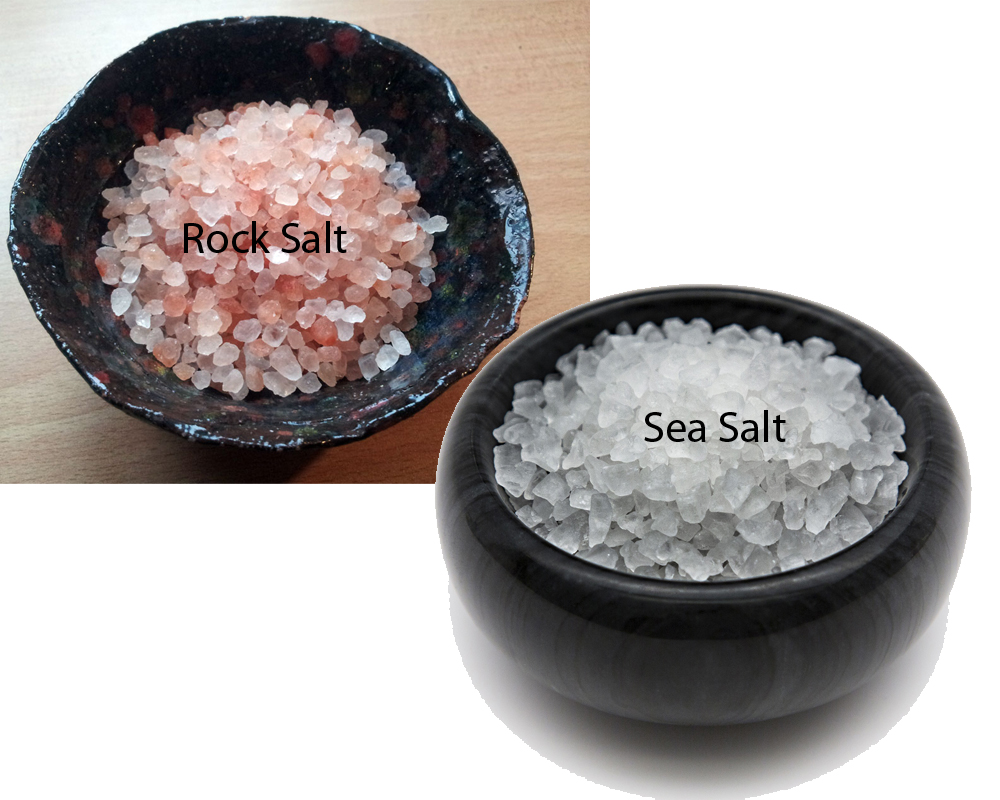Everything tastes a little better with a pinch of salt. So, is it our taste buds plotting a ploy against our health? Excess intake of salt can cause irreversible damage to the body. But can switching the salt help? Rock salt vs Sea Salt – which is better for your health?
Health benefits of salt
Salt is essential for the body. It helps regulate the fluid balance and nerve signalling. Salt increases salivation and boosts digestion. It further helps in balancing PH level, relieving gas, supports muscle strength. This table essential also help reduces heartburn.
Ayurveda characterizes it as an energizing, nutritive, demulcent and grounding food.
According to Ayurveda, salt clears the channels of the body. It further prevents stiffness and improves flexibility in the joints. As an enhancing agent, it helps to combat dullness, depression and lack of creativity. It is a great digestive stimulant and is an essential component in our diet. But remember to take it in limited quantity.
Side effects of the salt
A pinch of salt enhances the flavour, but another pinch degrades the body. Salt is important but having it in proper balance is more important. Excess of salt can cause an imbalance all the three doshas.
High salt intake causes water retention in the body. It can cause thick and viscous blood. This also results in thickening and narrowing of the blood vessels. This results in high blood pressure.
Research proves that high intake of salt is one of the major risks of high blood pressure.
Apart from this, excess use of salt can also cause premature wrinkles, thirst, skin problems and weakness. It also aggravates skin conditions and hinders sensory perception.
Moreover, studies proved that salt can cause burning sensations, baldness, ulcers and intestinal inflammation. This can also result in bleeding disorders, hyperacidity, vomiting, and infertility.
But how much salt is too much?
According to WHO guidelines, the human body requirement of salt is 500 mg per day. And one may take up to 2 gm which is approximately half a teaspoon of salt per day per person.
The war of salts – Rock salt vs Sea Salt
1. Saindhava Lavana (Rock Salt)
Saindhava Lavana or Rock salt is white cubic crystals of superior quality. And it is highly preferred by Ayurvedic physicians. Rock salt can be considered as a healthier option for diabetes patients, because of its property of reactivating insulin in the body.
According to great Indian Ayurvedic Masters– Sushruta, Charaka and Vagbhata ‘Rock salt’ exhibits the following properties
- It is best of all salts
- Rock salt is cooling, digestive stimulant
- It is an aphrodisiac
- This salt is wholesome for the eyes
- It is slightly sweet and alleviates all three doshas.
2. Samudra Lavana (Sea Salt)
Samudra Lavana is the sea salt obtained by the process of evaporation of sea water. This salt represent 75% of the total salt in India. Further, it is said that sea salt helps in eliminating mucus build-up and regulating blood pressure.
Sea salt as described by the three authors Sushruta, Charaka and Vagbata exhibits the following properties –
- Sweet in post-digestion
- Not too hot and non-irritant
- It is a laxative
- Samudra Lavana is beneficial in curing colic
- It is not too provocative of Pitta
Contamination
According to National Geographic, “microplastics levels were highest in sea salt, followed by lake salt and then rock salt.” Sea salt is produced by exposing seawater to sunlight and air. There are chances of the salt getting contaminated over the potential transfer of contaminants after the crystallization and concentration process.
Rock salt vs Sea Salt – The Takeaway!
Ayurveda hails rock salt as cooling and balancing form of salt. Rock salt contains as many as 84 essential and trace minerals. It’s mildness and diverse mineral content is beneficial for the body. Sea salt is mostly used as a preservative or in spas. But in coastal regions, it’s still used for cooking purposes. However, it is important to note that even though rock salt features so many benefits, it should not be consumed in excess.


1 comment
[…] Also Read: Rock Salt vs Sea Salt: Which salt is best for you? […]